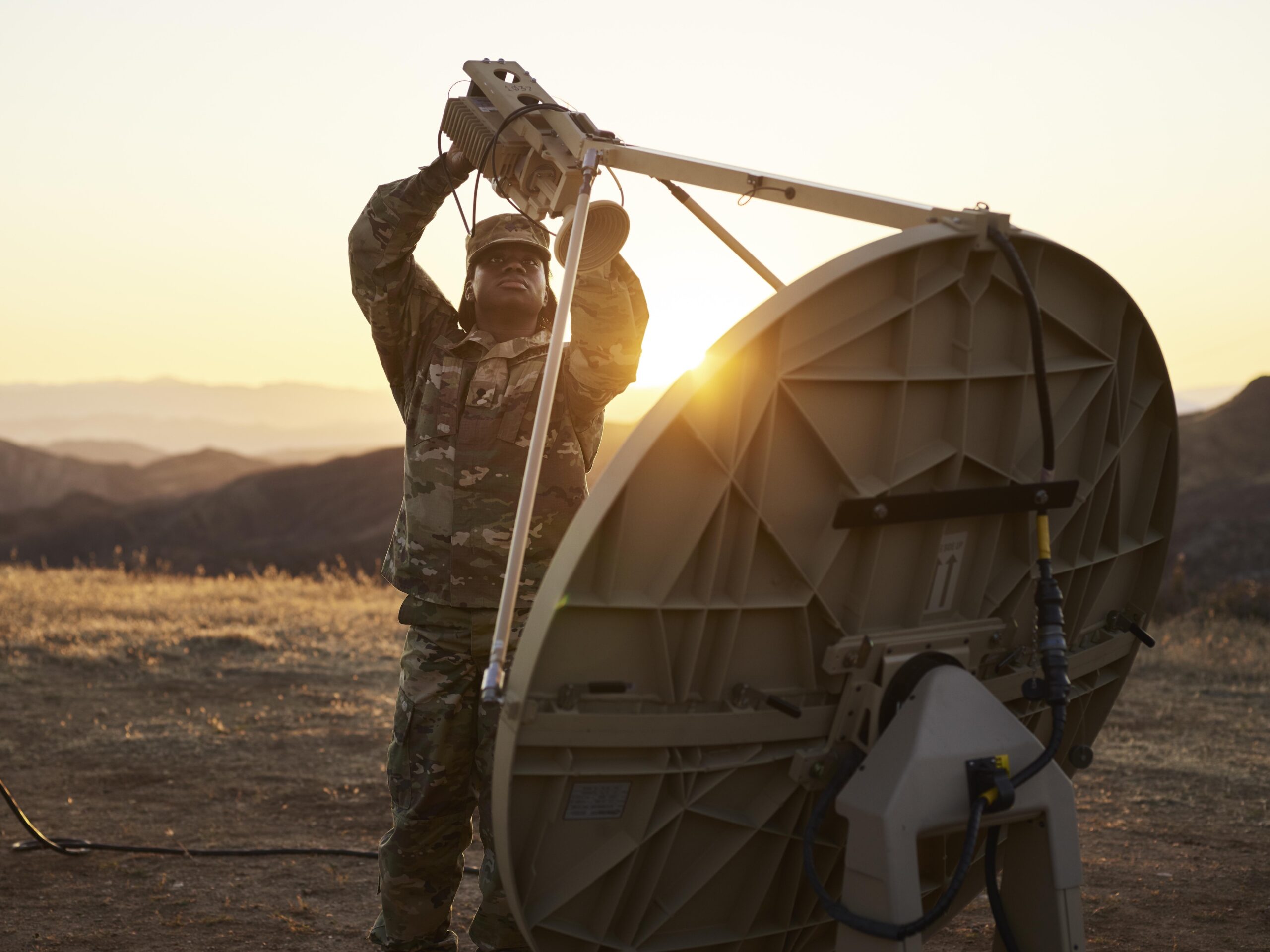WASHINGTON — The U.S. Air Force Research Laboratory awarded L3Harris Technologies a contract worth $80.8 million to conduct communications experiments using multiple commercial space internet services.
Under a program called Defense Experimentation Using Commercial Space Internet (DEUCSI), AFRL is working with defense contractors and commercial satcom providers to figure out how to integrate commercial space internet services with military platforms and weapon systems.
Over the three-year contract, announced May 25, L3Harris will attempt to connect military platforms — such as aircraft and ground vehicles — with commercial space internet constellations that operate in geostationary, medium and low-Earth orbits.
The idea is to merge services from multiple satcom providers into a seamless network. L3Harris will test how communications services from different constellations can be accessed using common user terminals.
According to the announcement, AFRL sought competitive bids for this contract but L3Harris was the only offer received.
AFRL started DEUCSI in 2017
Since the DEUCSI program started in 2017, several companies have won contracts, including Lockheed Martin, Northrop Grumman, Raytheon, Ball Aerospace, SES, Iridium and SpaceX.
AFRL said the program will look at ways the military can take advantage of commercial space internet networks.
One of the goals is to “quickly and effectively switch among commercial space internet services in different frequency bands to access favorable spectrum,” said AFRL. “In some cases, it may be advantageous to access multiple constellations simultaneously and split traffic between them.”
Military satcom users, said AFRL, want “flexibility in communications paths while minimizing deployment of constellation-specific hardware.”
For military aircraft, for example, the Air Force requires satellite communications services that are globally available and provide high data rates in any area without major hardware configuration changes. AFRL wants to ensure communications are constantly available and persistent “n spite of potential outages or degradations that may affect any individual constellation.”
